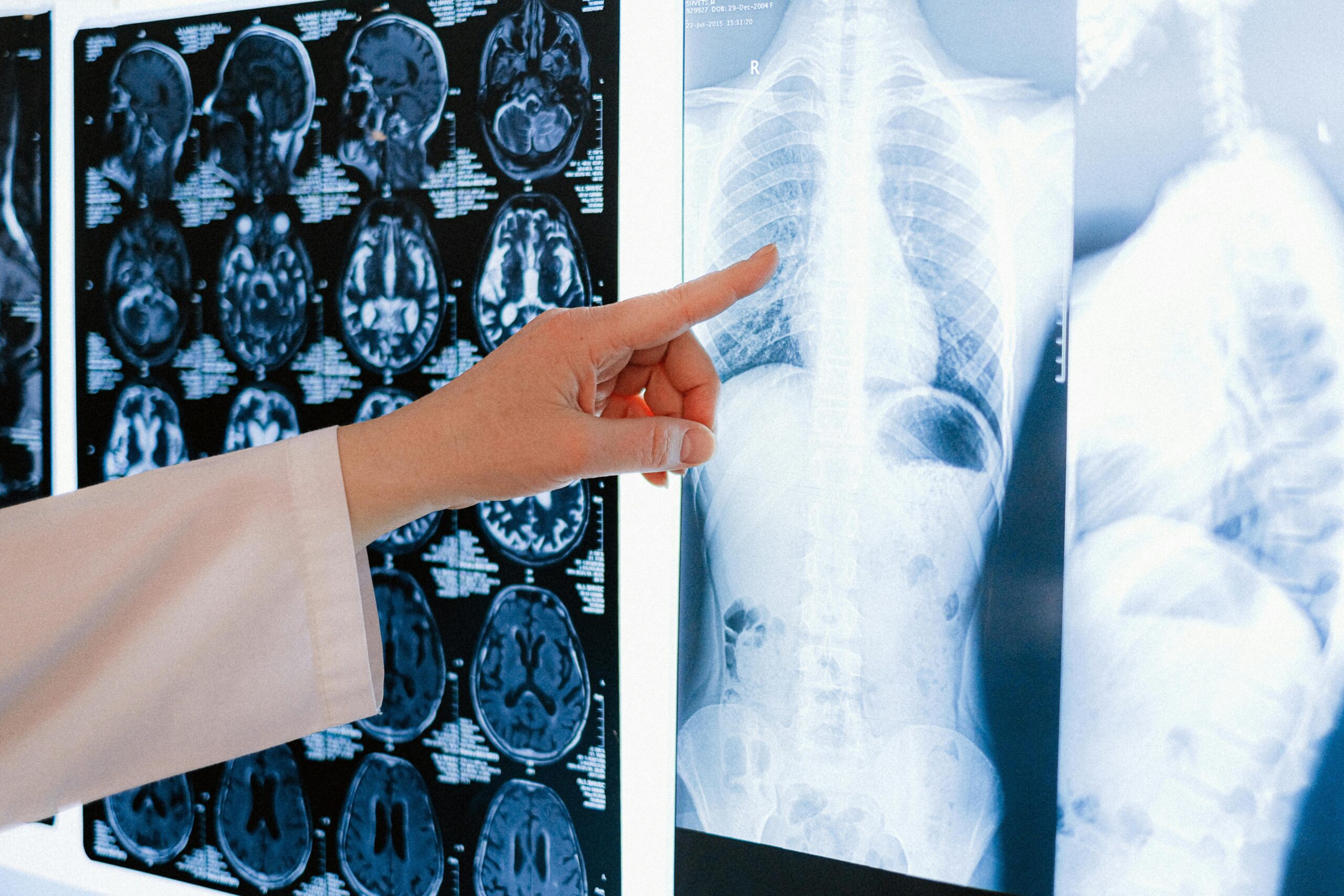Brina Sastyangkul is a 2024 JCal Reporter from Los Angeles County, CA.
A partnership between AAJA and / CalMatters

A partnership between AAJA and / CalMatters

JCal is a partnership between AAJA and CalMatters
2024 Program
California's Next Workforce
Radiologists across California are recognizing the potential of Artificial Intelligence (AI). The technology could analyze large amounts of data and […]
August 5, 2024

Radiologists across California are recognizing the potential of Artificial Intelligence (AI). The technology could analyze large amounts of data and X-ray imaging, spotting problems and bringing them to the attention of a physician quickly. But as its use becomes more common, healthcare professionals and legislators are also rushing to establish guardrails to protect patients from potential harms of AI.
At one faculty lab of UCLA Health, radiologists are already working with AI.
William Hsu, a Professor of Radiological Sciences at UCLA, said that his lab is about to go live with an AI technology that interprets mammography images, in the hope that radiologists could more easily decide the next steps in a diagnosis. Hsu also leads a project with Dr. Anne Hoyt, a Clinical Professor of Radiology, which uses AI to speed up mammography exams and returns same-day diagnosis, a relief for anxiously waiting patients.
Still, Hsu said that radiologists — and hospitals at large — are “very cautious” about implementing AI. As a result, UCLA Health interdisciplinary councils have established a governance process to examine the AI tools before putting them to use, which includes multiple individuals with expertise in clinical practice, model development, ethics, implementation science, and other areas.
“Radiologists may over rely on AI recommendations, assuming AI is infallible,” Hsu said in a written interview. “AI algorithms are not perfect, so this will result in errors.”
Lawmakers are similarly excited about AI’s potential, but are aiming to create safeguards against the risks.
“AI presents opportunities to society that are beyond belief,” said California state Senator Bill Dodd (D-Napa), “In the medical field, I think that it can really increase our ability to detect diseases sooner to be able to identify treatments.”
Dodd proposed the AI Accountability Bill 896, which will guide automated decision-making technologies and interactions between AI review and adoption, producing a report that includes potential risks of deployment, not just in California but also addressing the efforts of Governor Newsom and President Biden. The bill was approved in the Senate on May 24th, with 38 votes in support, but it was then amended by the Assembly Standing Committee on Privacy and Consumer Protection. It will next be referred to the Committee on Appropriations.
The California legislature has proposed only a few bills that address how AI should be used in healthcare. Senate Bill 1120, or the “Physicians Make Decisions Act,” is one of them. The bill, introduced by Senator Josh Becker and passing the Senate floor in May, amended by the Assembly Standing Committee on Health in June, and re-referred to the Committee on Privacy and Consumer Protection in July, is regarding whether humans reviewing decisions made by AI-assisted algorithms is necessary. If passed, the bill would require that health plans and insurers ensure that decisions be subject to review by a licensed physician’s supervision.
AI has been prominent in ChatBots like ChatGPT by OpenAI, but its implementation into workforces that are riskier such as that of radiology can be precarious. While AI has proven to increasingly assist physicians in their work and act as a tool to their success, there’s been questions in the air regarding if the implementation of AI in workforces still requires the need for human intervention.
“Even in areas that are technology dependent, always having some sort of human intervention reduces risk,” said Dodd.
Dodd added that the complete removal of human activity in an environment that works around human interaction and emotion is not going to happen soon. He hopes that with the right implications, new bills will help humans control AI and not vice versa.
Dr. Vinh Nyugen, Medical Director of Information Systems for the MemorialCare Medical Foundation, which operates multiple urgent care centers in Orange County, said that the radiologists at the group’s hospitals plan to use AI in diagnosis, but there needs to be “a human always in the loop.”
Nyugen works closely on testing new systems, primarily in administrative tasks such as visit summaries due to high risk factors when AI is used in direct healthcare. Even though summarizing a visit is what MemorialCare is using AI for, diagnosis is the next step for Artificial Intelligence in Orange County hospitals and across California. If implemented, this would alter the way physicians diagnose patients and devise the correct treatments and further steps.
“When we’re talking about something that is as risky as healthcare, it’s important that patients receive information that is correct,” said Nyugen.
Brina Sastyangkul is a 2024 JCal Reporter from Los Angeles County, CA.

JCal is a free program that immerses California high school students into the state’s news ecosystem. It is a collaboration between the Asian American Journalists Association and CalMatters.
Contact us at michael@calmatters.org or support@aaja.org.
Subscribe to aaja’s newsletter